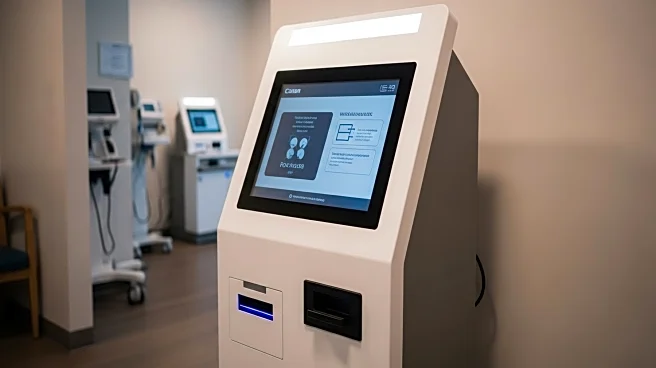What's Happening?
Amazon Pharmacy is set to launch kiosks in select One Medical offices across the Los Angeles area starting December 2025. These kiosks aim to provide patients with immediate access to their prescriptions following medical appointments. The initiative is part of Amazon's broader strategy to enhance healthcare accessibility and efficiency. Patients will be able to use the Amazon app to schedule appointments and select kiosk pickup, receiving a QR code for medication retrieval. The kiosks will be stocked based on the prescribing patterns of each office, and patients can consult with Amazon Pharmacy licensed pharmacists via secure video or phone.
Why It's Important?
This development is significant as it addresses the issue of unfilled prescriptions, which affects nearly one-third of prescriptions in the U.S. The kiosks aim to eliminate the need for separate pharmacy visits, thereby improving medication adherence and treatment outcomes. By integrating pharmacy services directly into medical offices, Amazon is removing barriers to access, which is particularly crucial in areas considered pharmacy deserts. This move could potentially reduce healthcare costs associated with delayed treatments and missed doses, benefiting both patients and healthcare providers.
What's Next?
Amazon plans to expand the kiosk service to additional One Medical offices and other locations beyond Los Angeles. The success of this initiative could lead to broader adoption of in-office pharmacy services, potentially transforming how prescriptions are filled and accessed. Stakeholders such as healthcare providers, patients, and insurance companies may need to adapt to this new model, which could influence future healthcare delivery strategies.
Beyond the Headlines
The introduction of Amazon Pharmacy kiosks could have long-term implications for the healthcare industry, including increased competition among pharmacies and potential shifts in patient behavior regarding prescription fulfillment. Ethical considerations may arise concerning data privacy and the commercialization of healthcare services.








